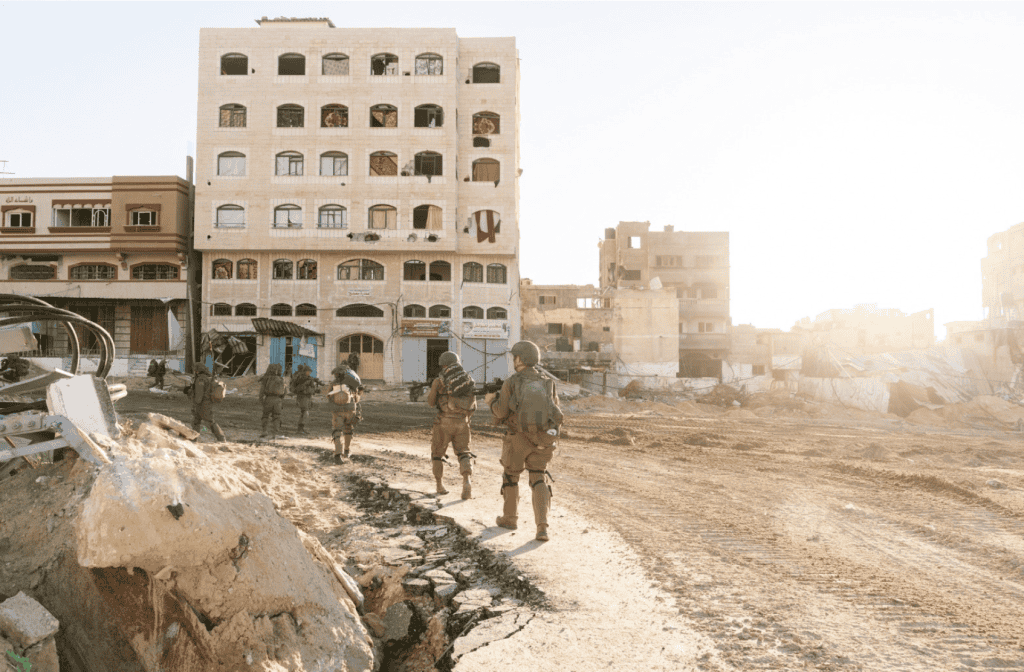
Hamas in Gaza fired several large barrages of rockets at Israel on December 21 as Hezbollah in Lebanon targeted the northern Israeli community of Avivim with anti-tank missiles. While most civilians have been evacuated from border communities, this attack by Hezbollah still managed to cause damage to Avivim. The rocket fire from Gaza did not cause any casualties, but it does mark an increase in rocket fire following a day and a half of relative quiet.
The rocket fire came amid discussions of another possible pause in fighting and hostage deal between Israel and Hamas. While discussions about a potential deal increased in the last five days, reports on December 21 said that Hamas rejected a deal for a weeklong ceasefire because they want a longer pause. The last pause in fighting from November 24 to December 1 ended when Hamas violated the agreement and resumed rocket fire.
The IDF said on December 21 that it had expanded operations inside Gaza. This comes after more than two weeks of fighting in Khan Yunis and as battles in Shujaiya and Jabalya have degraded Hamas battalions. According to The Jerusalem Post, more than 500 terrorists have been eliminated and 1,000 arrested from fighting in Jabalya. In northern Gaza, counter-terrorism forces from the elite Lotar unit were also involved fighting Hamas in Beit Hanoun. According to a report from the IDF and footage released on the evening of December 21, the unit was involved in battles in Shujaiya operating with the IDF’s 188th armored brigade. The IDF taps elite units like this for assistance in eliminating Hamas terrorists in operations complicated by the nature of the urban environment, such as securing tunnel shafts.
In northern Israel, in addition to the anti-tank missiles fired at Avivim, there were several rocket launches. The IDF said that an aircraft struck Hezbollah infrastructure overnight between December 20 and 21. A more complex series of clashes between Israel and Hezbollah developed during the day on December 21. “A number of launches toward the areas of Dovev, Avivim, and Har Dov in northern Israel were identified earlier today. In response, the IDF struck the sources of the fire,” the IDF noted. “Two Israeli civilians were lightly injured as a result of the launches toward the area of Dovev. In addition, a number of launches toward the area of Arab al-Aramshe were identified, which did not cross into Israeli territory. In response, an IAF aircraft struck the terrorist cell who carried out the launches,” the IDF said. A number of drones were also used by Hezbollah on December 21. The numerous incidents reflect an escalation in the north that also coincided with Hamas rocket fire from Gaza targeting Ashdod, Ashkelon and central Israel. The rocket fire occurred in two salvos over a five minute period.
Israel’s President Isaac Herzog met with the President of the French Senate, Gérard Larcher, at the President’s Residence in Jerusalem, according to a statement from Herzog’s office. “This war is a war against a lunatic terrorist organization, similar to ISIS, which led a sick, barbaric, sadistic campaign on 7 October. Since then, every day we learn of the never-ending tragedies and pain,” Herzog said. “We are fighting a war for the entire Western world, the entire free world. This is a war we didn’t want, it was forced upon us, and it was forced upon us by burning our citizens, cutting off their heads, raping our wives and daughters, and kidnapping our children and elders,” he went on to note. He also stressed that Israel was providing Gaza with a “dramatic increase in humanitarian aid.” This now includes between 300 and 400 trucks entering Gaza each day, he said.
The clashes on the northern front and expanded operations in Gaza came a day after Israel Defense Minister visited the Israeli Navy’s Sa’ar 6 corvette off the coast of Eilat. The visit occurred amid tensions in the Red Sea and the US announcement this week of a new maritime force to provide security for ships. “The threat to freedom of navigation in the Straits of Bab al-Mandab, two thousand kilometers from the State of Israel, is not only a threat on traffic to Israel, but also to international freedom of navigation in waters belonging to all countries,” Gallant said, according to a statement from his spokesperson. “We will not tolerate threats against the State of Israel. If they continue to provoke us, try to attack Eilat with missiles or by other means, we will know what to do,” he said. He also thanked the US Secretary of Defense Lloyd Austin for establishing the “multinational force tasked with ensuring freedom of navigation for all, in the Strait of Bab al Mandab.”







